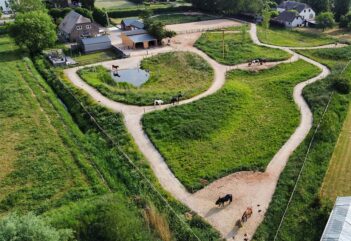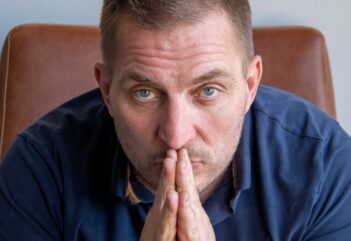- Saturday, July 8th, 2023
- Blog
Sport horses in a Paddock Paradise
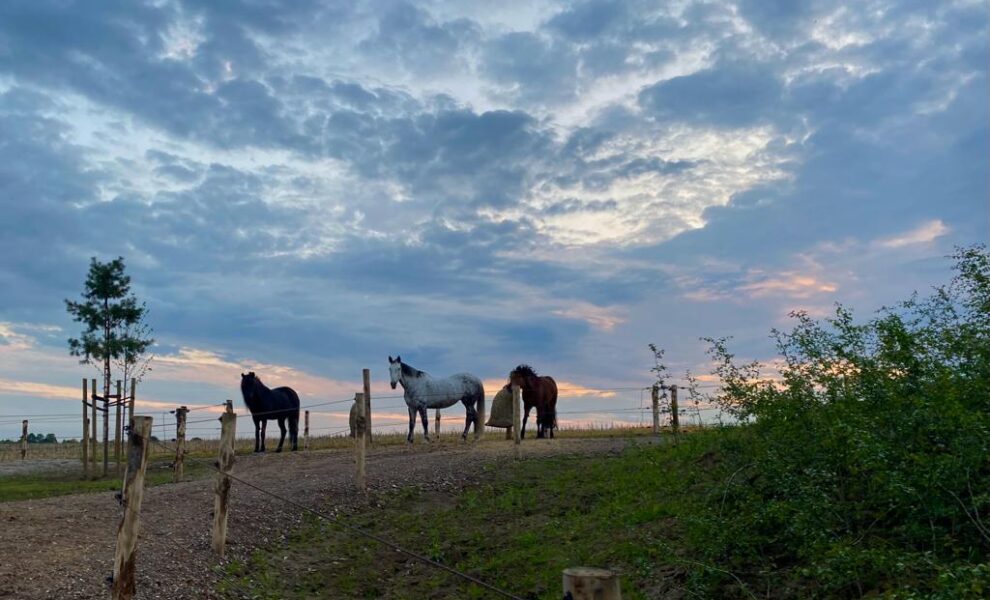
The dream image
It has been clear to us for some time that Paddock Paradise appeals to the imagination. The image of horses that can move freely, mix with other animals and therefore 'scurry around' is an image that every horse owner likes deep down.
The Paddock Paradise housing system is therefore receiving increasing attention both at home and abroad. The demand for more natural behavior and more freedom of movement for horses is increasing!
But what does it actually mean to realize such a Paddock Paradise for your horse? Are there rules of the game that we have to abide by or is it really just a matter of setting off a path around the meadow and going for it?!
The sport horse
Now I don't want to polarize, but let's be honest - there is often a noticeable contrast between the leisure rider and the sports rider. One usually goes into the woods with a loose rein, while the other is seriously involved in training schedules and competition programs. And therefore often with a feed policy which… how shall I put it… quite often deviates from what we try to achieve in the natural care of a horse.
It's a sport horse!
It is the most normal thing in the world for a horse to be fed additionally in training and in preparation for competitions and performance. When you ask sport riders about what their horse eats, they usually don't start about the roughage. The supplements and concentrates often form an important component in the whole and are usually seen as indispensable. After all, the horse is in training and has to perform. It's a sport horse!
But is all that food really necessary? Does it have possible negative consequences for your horse? And what does this mean for an animal that will be placed on a Paddock Paradise..?
The principles of a Paddock Paradise include freedom of movement, living together with other horses and the
encouraging more natural behaviour. But there's more. We avoid grass as a primary food source, provide high-quality hay and do not feed any or hardly any supplements. Why are we doing this?
So how does food work?
Well, the grass, with its fluctuating energy content, is a very unreliable factor. In addition, the horse is not evolutionarily equipped for our rich grasslands and we almost always see symptoms of laminitis in horses on the pasture.
Stay close to your horse's biology, that's where he is safest
Hay is a preserved grass which – when produced correctly(!) – resembles the structure-rich food that horses eat in the wild. Traditionally or naturally, horses mainly eat roughage. It is therefore important to pay a lot of attention to its quality!
The supplements and concentrates seem to be a controlled food source that has been well thought out, but who has carefully bagged and
If you read the package inserts, you will usually see many substances passing by that affect the intestinal flora of the horse or at least do not benefit it. Soya, barley, molasses, beet pulp, vegetable oils, etc. There are endless examples of substances that do not or very poorly suit the horse. In addition, this feed is often given to the horse at fixed times and suddenly in large quantities.
Traditional vs natural horse keeping
We often see that horses that are in a more traditional setting (stable, pasture, paddock), are active in the sport and consume a lot of energy-rich food, run into the necessary problems.
Without a horseshoe, they are often ill-suited.
They may exhibit unruly or restless behavior and have vague and recurrent injuries. We see the opposite in horses kept in a more natural setting. More relaxed animals and therefore fewer accidents and hassle. Barefoot over different surfaces and.. no injuries.
But what does all this mean for the transition to a Paddock Paradise?!
In a Paddock Paradise you are going to expose your horse to the elements. They will be in constant motion. They are always with other horses. And depending on where your horse is standing, it may even be insurmountable that the horse's foot is placed on a firm, hard surface. It is therefore extremely important to think about the impact of this new environment on your horse.
You determine the result
If you want to get the best results from your horse and from your Paddock Paradise, this means that you will have to let go of many things. You don't feed three times a day in a Paddock Paradise, but once. You don't count kilos, you let the horse decide. From now on your horse is busy with being a horse 22, 23 or 24 hours a day. And who knows this better than the horse itself? Exactly, nobody.
It's your job to facilitate. You provide a safe, stimulating living environment. You provide good quality roughage 24/7. You have taken into account sufficient shelter and you prevent horses from having access to plants and substances that do not suit their intestines. As a rider you don't overexert yourself and you know how to make a horse's training enjoyable and effective.
And if you take all these things into account, have a little patience, educate yourself and trust the horse, you will see that your sport horse can also walk barefoot and perform effortlessly over time.
Stay close to your horse's biology. That's where he's safest.
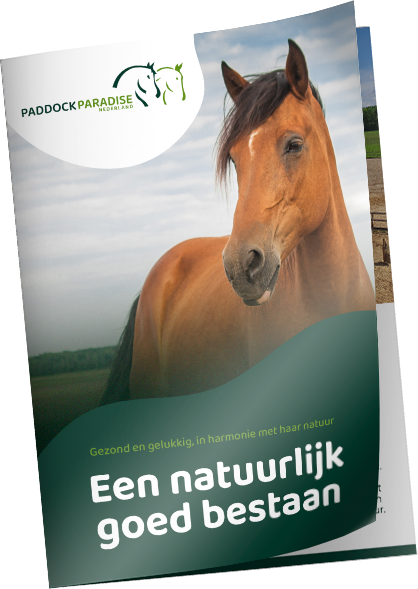
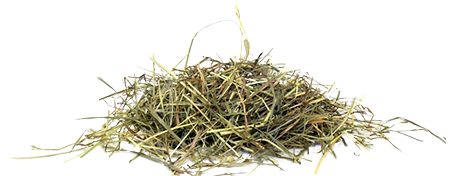
Do you wish for your horse to have a naturally sound life?
We personally supervise all our projects. We are committed and consistent in sharing our advise and tend to everything: from excavation work to fencing, from permits to design plans. And with immediate results. Attentive horses in motion. Healthy, happy, and in harmony with nature.
Would you like more information about the possibilities for realizing your Paddock Paradise? Download our E-book or contact us personally.



